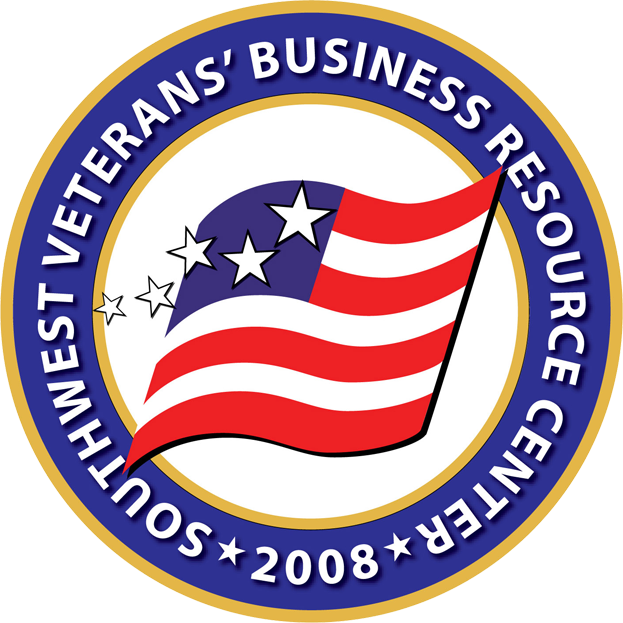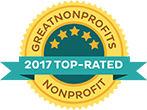Money Making Projects
The idea of a money making project is to make money relatively fast, and
without the complications of a regular business. Think of it as a business
that has a start and a finish, no ongoing commitment, and for our purposes,
no large investment of money. In fact, the latter will range from a few
dollars to a few thousand in the examples that follow.
Relative speed is important because these are "survival projects." The
assumption is that you have lost your job or existing business and need to
raise money to survive. The low investment amount is meant to make most
of these possible using what savings you have or cash you can obtain from
credit cards and other sources.
Rummage Sales
A rummage sale is a classic business project that you can use to raise money
fast. You have it when you want to (within reason) and then you are done
until you feel like having another. Hopefully you read the section on
rummages sales in the last section, which introduced them as a way to raise
money fast by selling off your personal possessions. This is about the next
step - selling other things.
To begin with, you might want to approach all of your friends and se if they
have things to get rid of. Let them know that you're having a big yard sale
and tell them you'll sell their things for them - for half of the proceeds.
Make sure they put a price and their initials on each item, and agree that you
can lower the price up to 40% if the thing doesn't sell the first day.
You can also buy things cheap when you see them at flea markets and other
rummage sales, and then sell them for a profit at your own sales. If you try
this one, keep in mind that not everything will sell, at least not at the first
sale. Some things may never sell, or not until you lower the price to what
you paid or even less. Even if everything eventually sells at cost or higher,
you will have money invested into a pile of things.
Because of this tied-up capital, and the potential to estimate values
incorrectly, I wouldn't pay more than 30% of what I thought an item would
sell for. For example, if you see a lamp that you think will sell for $15, don't
pay more than $4.50 for it. That way, if you sell only half of the things you
bought, you might still have a decent profit.
As mentioned in the previous chapter, a good flea market can be a better
place to have the sale than your home. The large flea market we used to visit
when we lived in Arizona, for example, charged just $12 to set up, which is
less than an advertisement in the classified section of the newspaper. Also,
because they operated every week and advertised, they always had
thousands of visitors.You might even scope it out first, to see what people
there are buying, and then find a source for those things.
Auto Sales
Buying and selling a car is another potentially profitable money making
project. I dealer friend of mine used to regularly find cars for a few thousand
dollars or less that could be sold quickly for a thousand dollar profit. But
you don't need a dealers license to do this.
Many years ago a neighbor of mine used to buy cars, clean them up and
then sell them out of his front yard. He paid the rent and bills and didn't
have a job, so it's safe to assume that he made some money doing this. This
was despite the fact that his English wasn't all that great.
The used cars that move fastest with the least trouble are in the "cash
range," meaning they can be bought buy people with a few paychecks or the
money they receive from their income tax refund. This is around $4,000 and
under for the final sales price. You'll want to buy the cars for at least a
thousand less than what they should sell for. Do this and you should make
money even if an unexpected repair is necessary.
This means you'll need some knowledge about car prices. If you don't have
that, you can get educated by watching the ads in the classified section of
the local newspaper. You can also buy or borrow an auto price guide or
"blue book" that lists the average sales prices of used cars. These are biased
upwards, by the way, since they are meant as much as tools for dealers as
for accurate information, so adjust your expectations accordingly.
You can also ask for help if you have a friend who knows what cars are
worth. Thanks to friends, I made money "flipping cars" several times when I
was younger, and without any idea what they were worth. There is more on
how to do that in the next section.
If you are worried about the legality of this, you can check with the motor
vehicle department in your state. Generally you are free to sell up to a
certain number of cars each year without the need for a dealer's license. In
California when I did this, for example, if you sold no more than six cars
each year, there was no problem.
You should probably also make it appear that you are simply selling your
personal car rather than doing this as a business. In other words, don't attract
attention - except that of the buyers.
There are two ways to sell more than the legal limit in a year. One is to
"skip title," which means when you buy the car you get the sellers signature,
but you leave the rest blank and fill it in with the name of your buyer when
you sell. It looks like the car went straight from the person you bought from
to the person you sold to.
This also saves you from paying sale's tax and a title transfer. It also will
mean that the car is uninsured while you have it. It is also very illegal,
which is a good reason to try the next strategy instead.
Put some of the cars you buy and sell into the name of your wife or husband
or girlfriend or boyfriend. If the limit is four cars annually, for example, you
can sell four and your wife can sell four, for a total of eight. Just be sure it is
okay with the person you are using, since he or she will have to sign off on
the title when you sell.
The basic strategy? You find a car that is relatively popular. We'll suppose
for this example that it should sell for $2,500 when cleaned up. The seller is
asking $1,900 and doesn't know how to sell a car, so it has been sitting in
his driveway for a while, dirty and with a flat tire.
You ask if he is willing to negotiate on the price, and he says he might
"come down a little." You put some fix-a-flat in the tire, test drive the car,
look at the engine, etc. Take your time. Point to the problems, dents and
such. Then you pull out 13 one hundred dollar bills and ask if he wants to
sell it today.
"Make it $1,400 and it's a deal," he says. You agree, since you were ready to
go as high as $1,500 in any case. It's important that you have a large
potential profit margin because cars are unpredictable. You might drive
away and discover that it needs $800 in repairs, so you need a safety margin
as well as a profit margin.
After a thorough cleaning, a tire repair, taxes, insurance, title transfer and an
ad in the paper, you have about $1,600 into it. You price it at $2,650 and
after four people look at it you accept an offer for $2,300 ten days after you
bought it. A $700 profit. Now you look for the next project.
Projects Using Other's Expertise
What if you wanted to make money buying and selling cars, but you knew
nothing about what they are worth? Maybe you don't even know what is
popular, or how to look at a car (does that squeaking sound indicate a
serious problem?). What do you do? You find someone who knows these
important things and put up the money while he or she does the work.
This is not just about cars, though. Boats, snowmobiles, motorcycles, jetskis
and all sorts of things with potentially large profit margins can be
bought and sold using the expertise of others. Just find a friend who can tell
you what some class of things will sell for and strike a deal.
For example, when I was young a friend came to me and said he found a
great deal on a car and needed the money to buy it. He would split the profit
with me once it sold. I asked why would I want to buy an old fiberglass car
for $2,300? And what the heck is a Stingray Corvette anyhow? I really
knew nothing about cars.
John explained that we could sell it for $5,000 after a a few repairs. I still
didn't understand why anyone would pay that much for a 1976 auto. It was
old! He had to show me several car magazines before I understood that for
whatever reason, these cars really did sell for that much and more.
He eventually convinced me to put up the money, and got the car for
$2,200. He arranged for a new transmission for $900, as well as cleaning
and other minor repairs. He brought it over, very proud, and asked if I
wanted to ride in it. He couldn't quite understand that I didn't even care if I
saw the car, and no, I had no desire to drive it.
A week later I came to work and he told me to take over his table for him
(we were blackjack dealers) while he ran out to the parking lot and sold the
car. It was a quick sale for just $4,300, netting us about $1,000 after all the
expenses. I took half the profit ($500) for putting up the money for the two
weeks, as agreed.
Over the years I did this several times with friends who knew cars but didn't
have cash. I unfortunately passed on a boat that would have made me a
thousand dollars. There are many things this can be done with, because most
large used items sell in what economists call "inefficient markets," meaning
there isn't universal and easy access to pricing information (you can buy low
and sell high more easily).
No money? No excuse. If I had paid 18% interest and a $50 cash advance
fee to raise the money with a credit card, my profit would still have been
over $400 within two weeks, and John did all the work. Also, you can start
with smaller lower-priced items and build up your capital over time.
We have mentioned cars and boats. Here are a few of the other things you
might be able to buy and sell for a profit if you can find a friend or partner
who is knowledgeable in that area:
Restaurant Equipment - An owner of a Pizza place I used to work at bought
a used dough mixer for thousands of dollars. Perhaps the seller had bought it
for a thousand less. Small restaurants often buy used equipment.
Lawn Tractors - Find out what they sell for, buy them for less - you get the
idea.
Recreational Vehicles - I have seen RVs sell for as little as $400. I suspect
they are often promoted poorly and sold too cheap. One that normally sells
for $15,000 might sometimes go for $9,000. Now if I can just find a friend
with experience in this area.
Panel Trucks - The way to sell an old bread delivery truck is probably to go
directly to businesses that may need one, like used furniture stores or small
moving companies.
High-End Antiques - A local furniture shop where we live has a cabinet
from the 19th century for sale for $12,000. Was it bought at some estate sale
for $4,000?
Trailers - Trailers for boats, cars, snowmobiles and more are often sold
used.
Buying And Selling Estates
My wife and I met a couple who buy out whole estates, sell some of the
things at flea markets, then run the rest through auctions to clear everything
out. They've made a living doing this for years. They load up a trailer after
negotiating to buy a whole house full of stuff. Then, if they don't want to do
the flea market thing, they just auction everything on Sunday afternoon for a
nice profit.
If you are a good judge of value and have a regular auction nearby, you
could do the same. When buying a large lot (collection of items), you should
note the things for which you have a clear idea of value. By value, I mean
what they will easily sell for, not what they "should sell for if the right buyer
comes along." Add up the projected sales prices of these key items and
make an offer no higher than that total. All the rest becomes your profit
then, and this is a relatively safe way to buy.
Although this can be a business, it can also just be done once as a money
making project. You can get more for large items selling them through
Craigslist.com or even at a flea market, but having an auction available is
important, so you can quickly dispose of everything else. You don't want
your profit to consist of a bunch of "valuable" things piled up in your
garage.
 A welcoming home for our Troops.
A welcoming home for our Troops.

